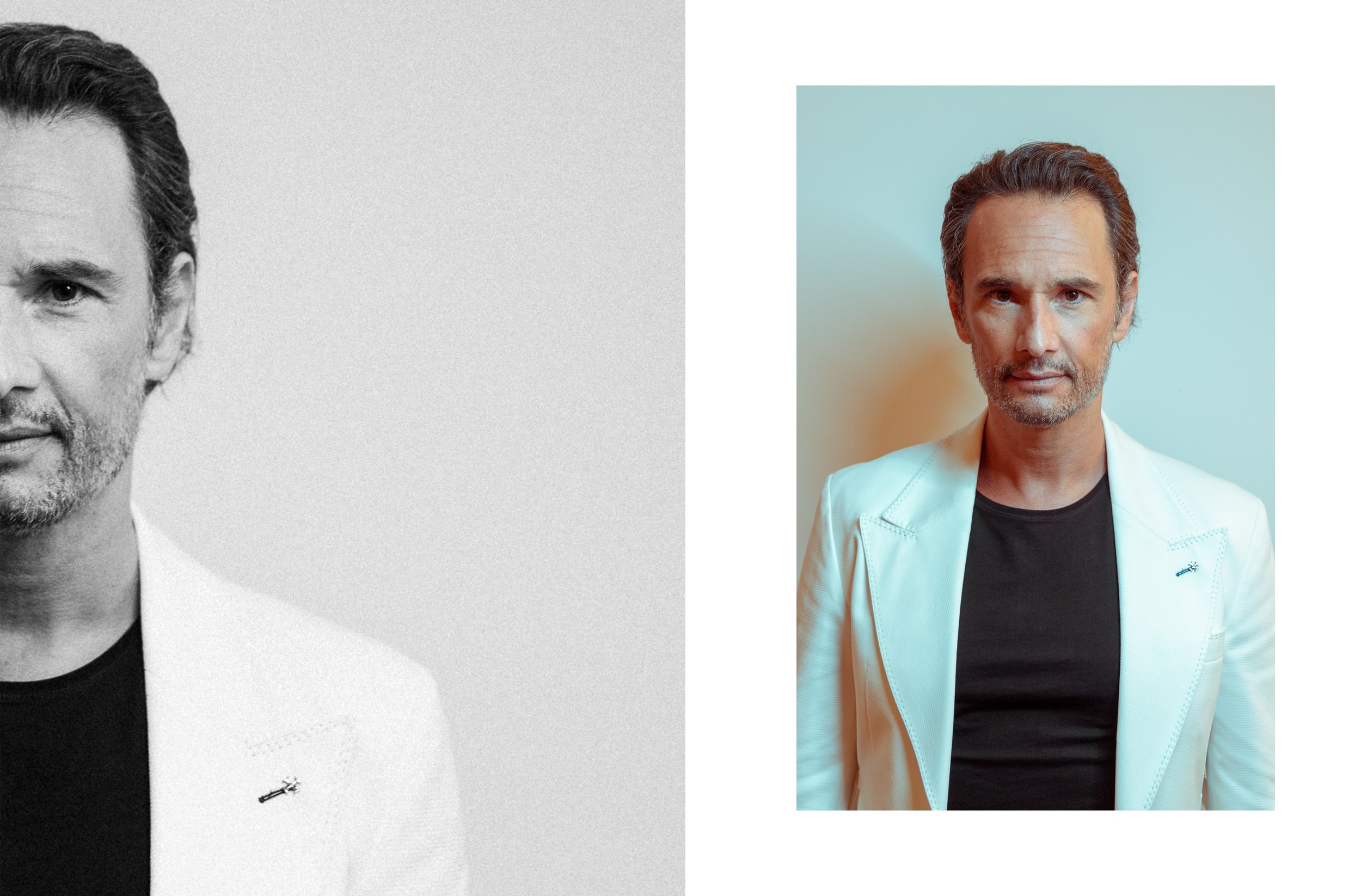Is there a way out? Are we all accomplices? Is there hope if we stick together? Is the system completely failing us? But aren’t we the system?
“7 Prisoners” directed by Alexandre Moratto is a raw and (unfortunately) real picture of human trafficking and enslavement happening in Brazil (but that actually happening in so many other countries) that turns a junkyard into a true prison where wrongdoing is what appears to be the only choice of course.
We chatted with leading actor Rodrigo Santoro about the emotional challenge of portraying such a despicable character that was, as he said, really hard not to judge and the research and work he did to bring him to life.
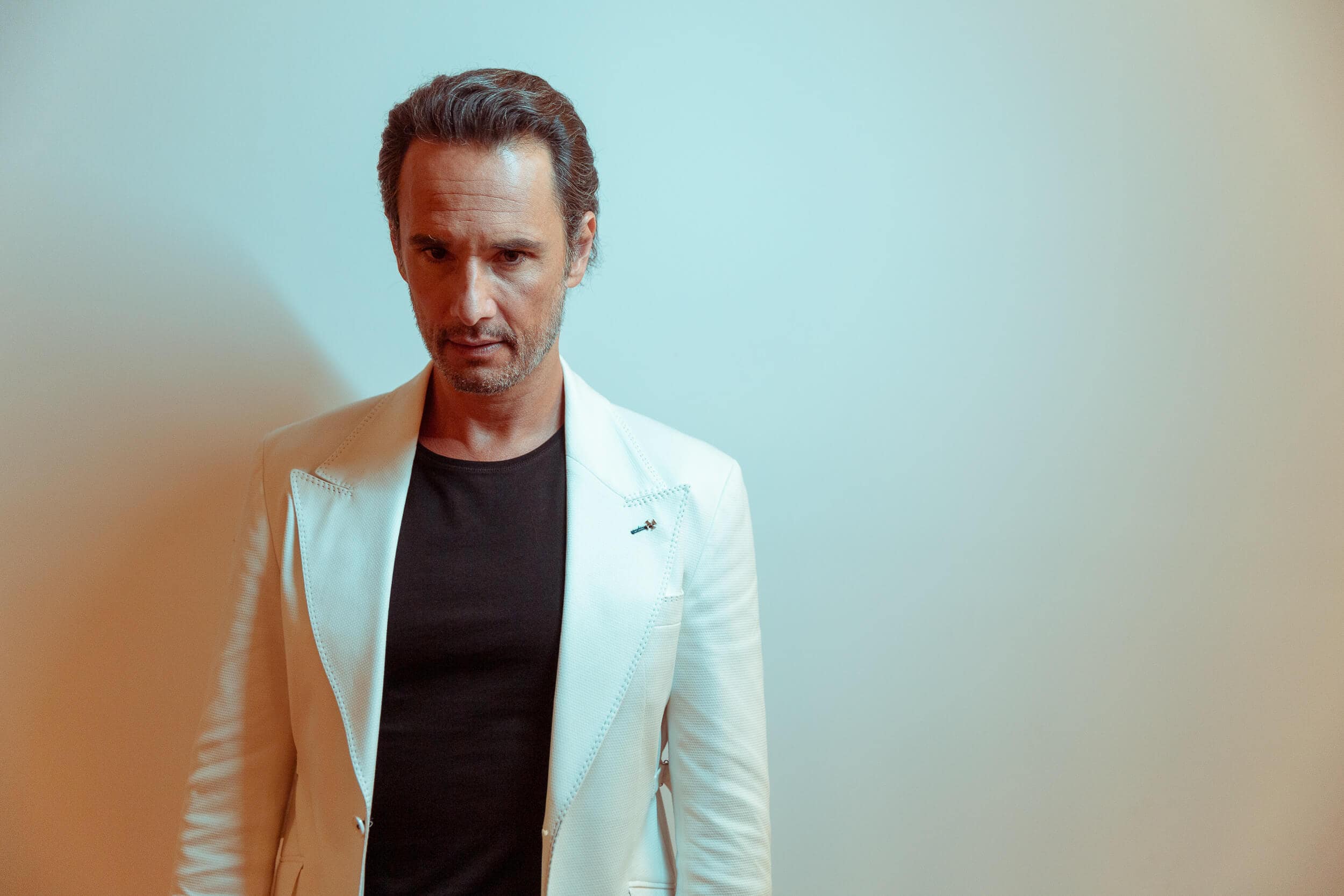
The movie makes you feel trapped, it left me with a sense of anxiety and not having a real choice. What was your first reaction when you first read the script? And the first question you asked the director?
As a first reaction, I was mortified because I knew it was based on reality, I was aware of it, but I’d never really researched about it until the project came. I was deeply moved, scared, curious. The first question I asked Alex was, “Is this all real?” and he said, “Every bit of it and more. Let me show you something.”
This project comes from huge 4 years-research: he interviewed real victims, and that’s where it came from; so, he started to get in touch with all of that, and more and more I couldn’t stop thinking about it, I couldn’t stop thinking that as more as I researched and learned numbers, conditions, the people – and we’re talking about 40 million people around the world – as we speak are in those conditions, right now, in Brazil, thousands.
What about your own research for the movie?
I started to research on the Internet, I started to see videos of people talking, and it was devastating. I was immediately connected to the importance, the urgency of this subject matter. Then, with Alexandre [Moratto], we talked about the character: the character wasn’t written especially for me, the description of the physique was different, but Alex said, “I think you’re the best option for me, you’re not an obvious choice, but I really believe you can bring a lot to this part. I think it’s going to be a big challenge for you, as well.” I just wanted to help to tell the story.
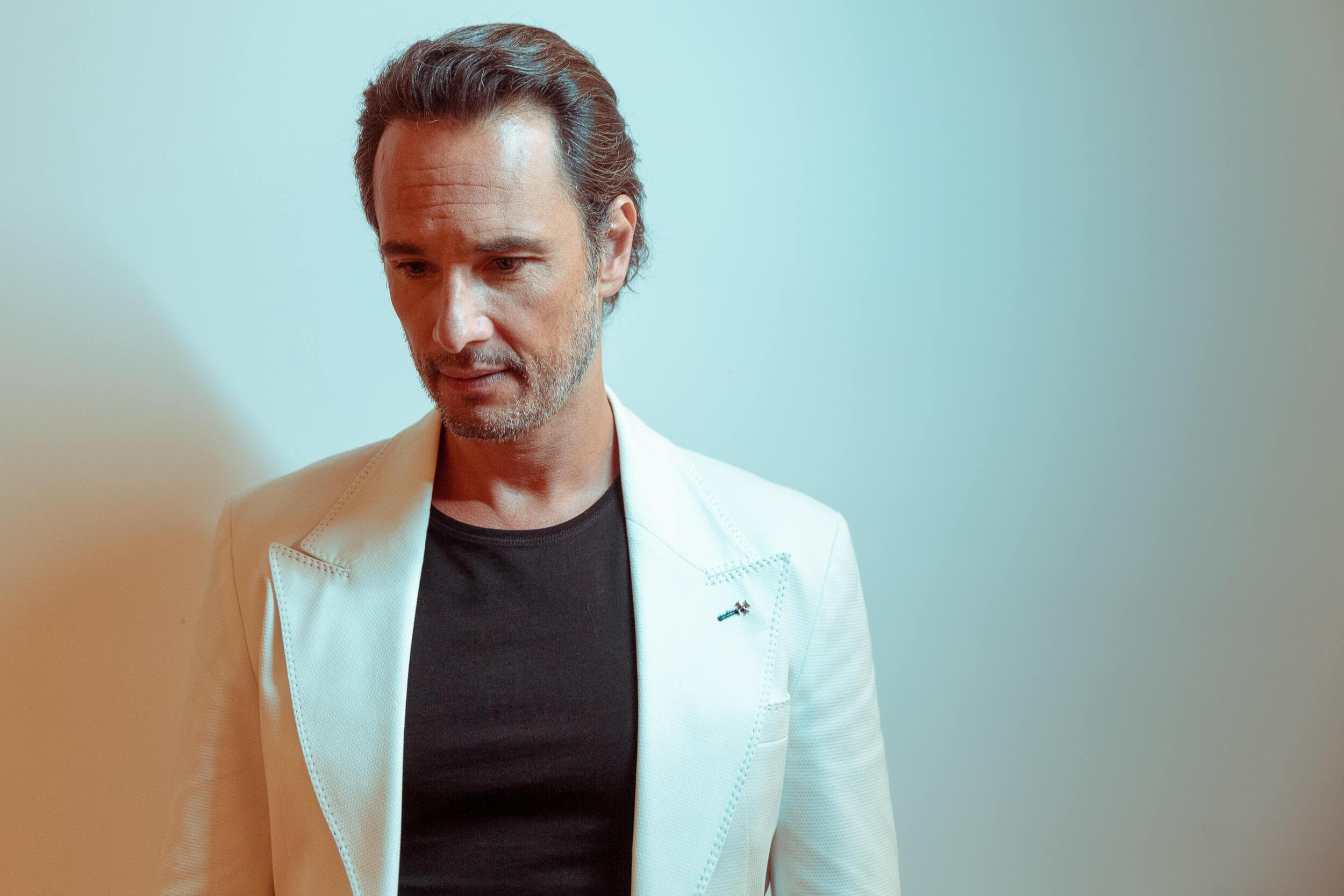
“I couldn’t stop thinking about it, I couldn’t stop thinking that as more as I researched and learned numbers, conditions, the people – and we’re talking about 40 million people around the world – as we speak are in those conditions, right now, in Brazil, thousands.”
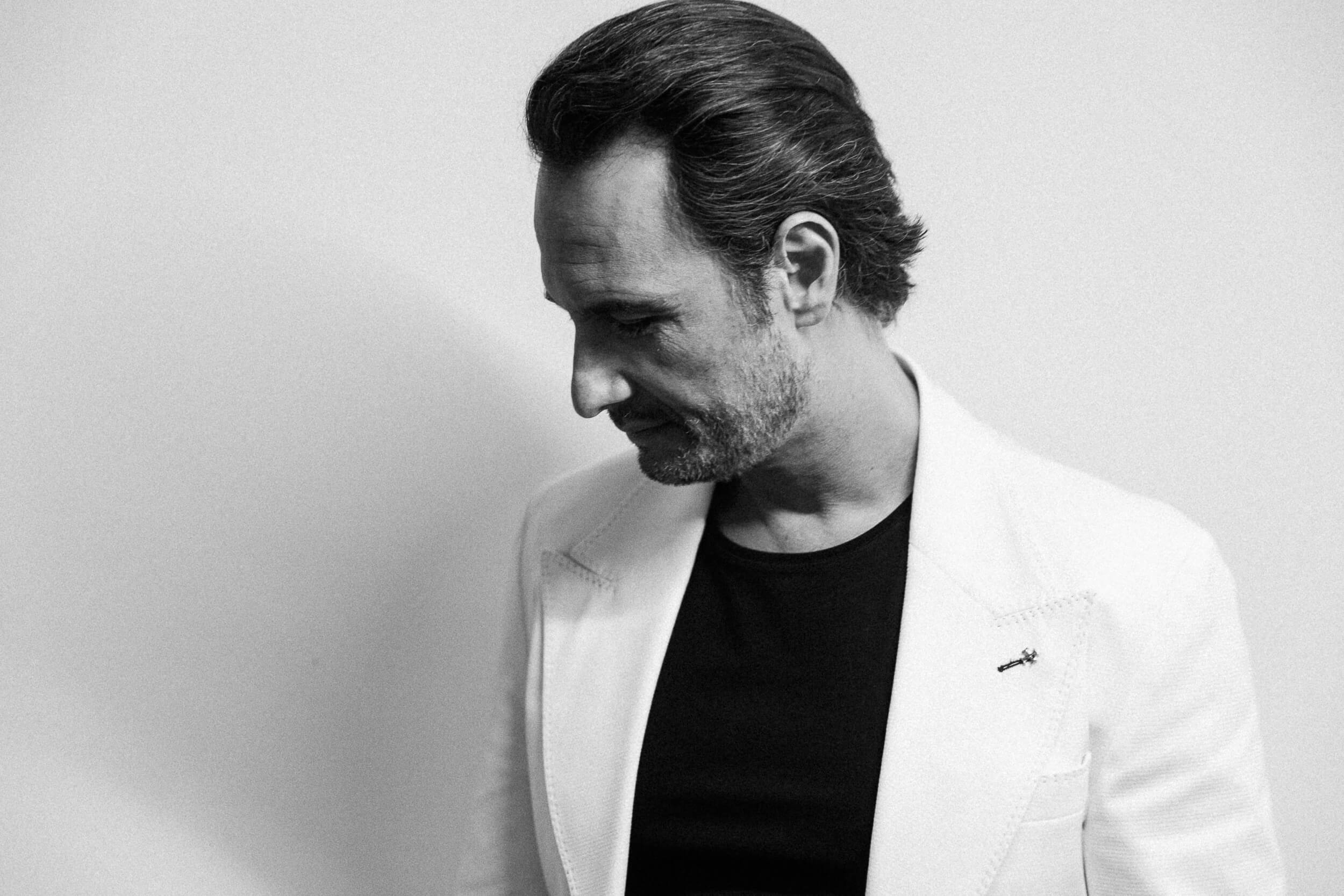
I also think you worked a lot on your physicality, your movements. We can see Luca has these kinds of tics in the way he moves, but, from an emotional point of view, what was it like to portray a character like Luca? I think you despise him, but, again, you end up understanding he’s like Mateus, he didn’t probably have a choice, it’s like there’s no way out of it, it’s like a never-ending circle.
Yes, it was very difficult, it was a painful process because, as an actor, you use your body, your own emotions, so you get affected by what you’re doing, at least in my experience. Also, I grew up in a middle-class privileged family, and Luca, the character I was playing, came from misery, no opportunities, starvation, basically, living in the slums, in the favelas. That’s a reality that I grew up with because I grew up in Rio, in Brazil, but I’d never been really close to it, but, playing this part, I had to research and get close to it. I visited some communities in the favelas, I’ve spoken to a lot of people, I’ve heard from victims of this kind of situation. It was some big research, and all that was painful, all that was just witnessing it and getting close to it. One thing is that you know “oh yeah, there’s poor people, that’s sad, they’re victims of this kind of situation,” the other thing is to really get close and try to put yourself in that space internally, emotionally, physically, and that hurts.
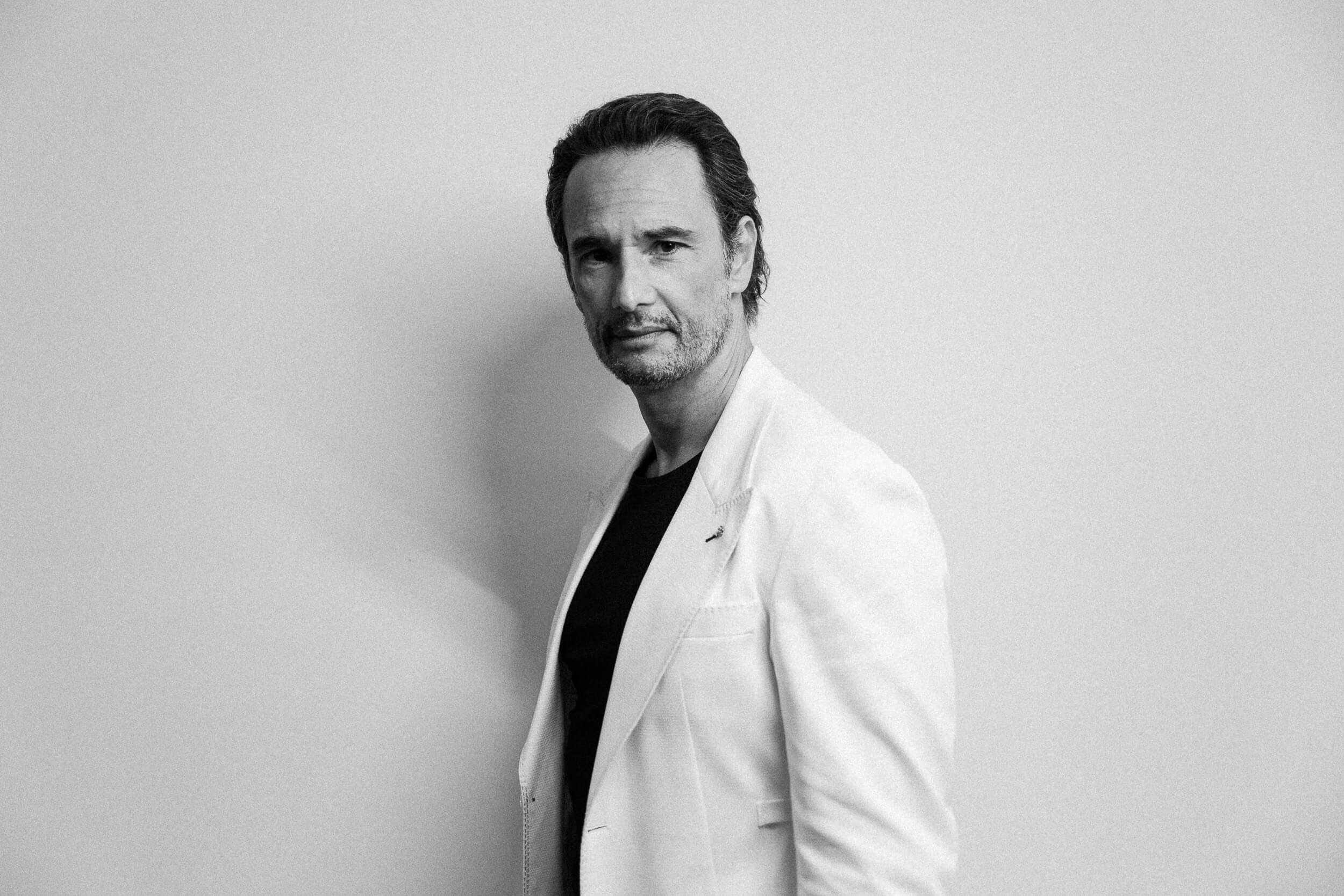
Then, it generated a lot of questions, for me: I felt guilty of what I had, I felt scared, and I couldn’t help, in the beginning, but judging Luca and hating him, I hated my role, the character I was playing; so, I had to put that away because, as an artist, I cannot judge him, I can have an opinion, but, as an artist, I want to bring humanity and play the part as it is. I just need to comprehend the totality of what is the human being and his conflicts, where he comes from, what was his life like to understand him and, then, portray him with humanity, with three dimensions, that’s all I have to do because, as you said, you hate him but you kind of understand him. The important thing was to understand him, he does not have redemption, he knows what he’s doing exactly, he knows he’s wrong, he chose to do it because he’s bitter with life, he never had anything. So, he found a way to get through, to make a better life for his family, for himself, and he doesn’t really care, he’s just going to do whatever it takes because what he had was too painful. All that was a learning experience for me because I really had to visit that place every day, and, at the end of the day, I really had to be in that place, I couldn’t just start to go back and have opinions on Luca, I just had to be him, I had to be there, It took me a while, probably it was the first or second week where I said, “This is it, let’s just go and follow this track and try every scene, play it realistically, genuinely where Luca was coming from.”
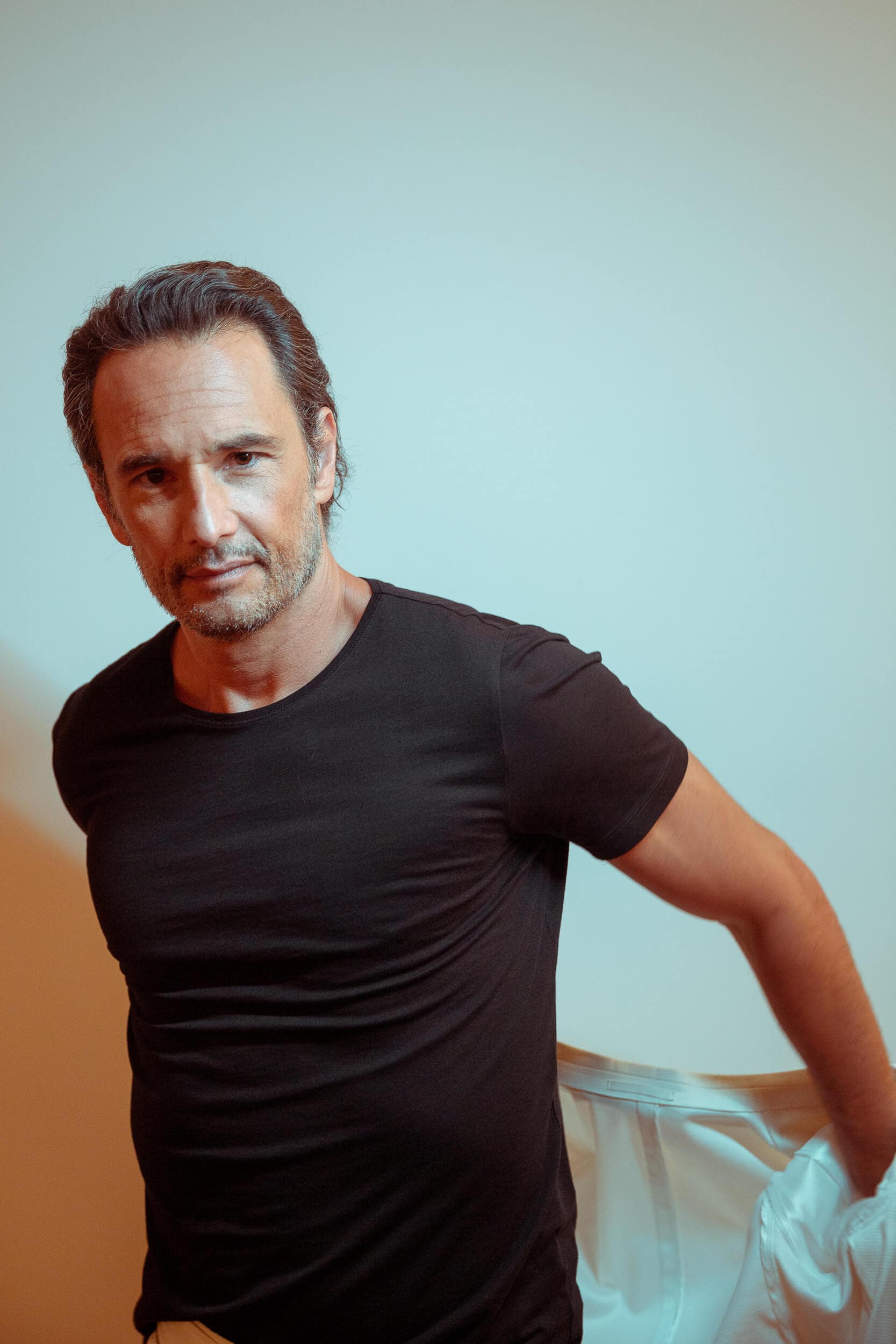
“It was a painful process…”
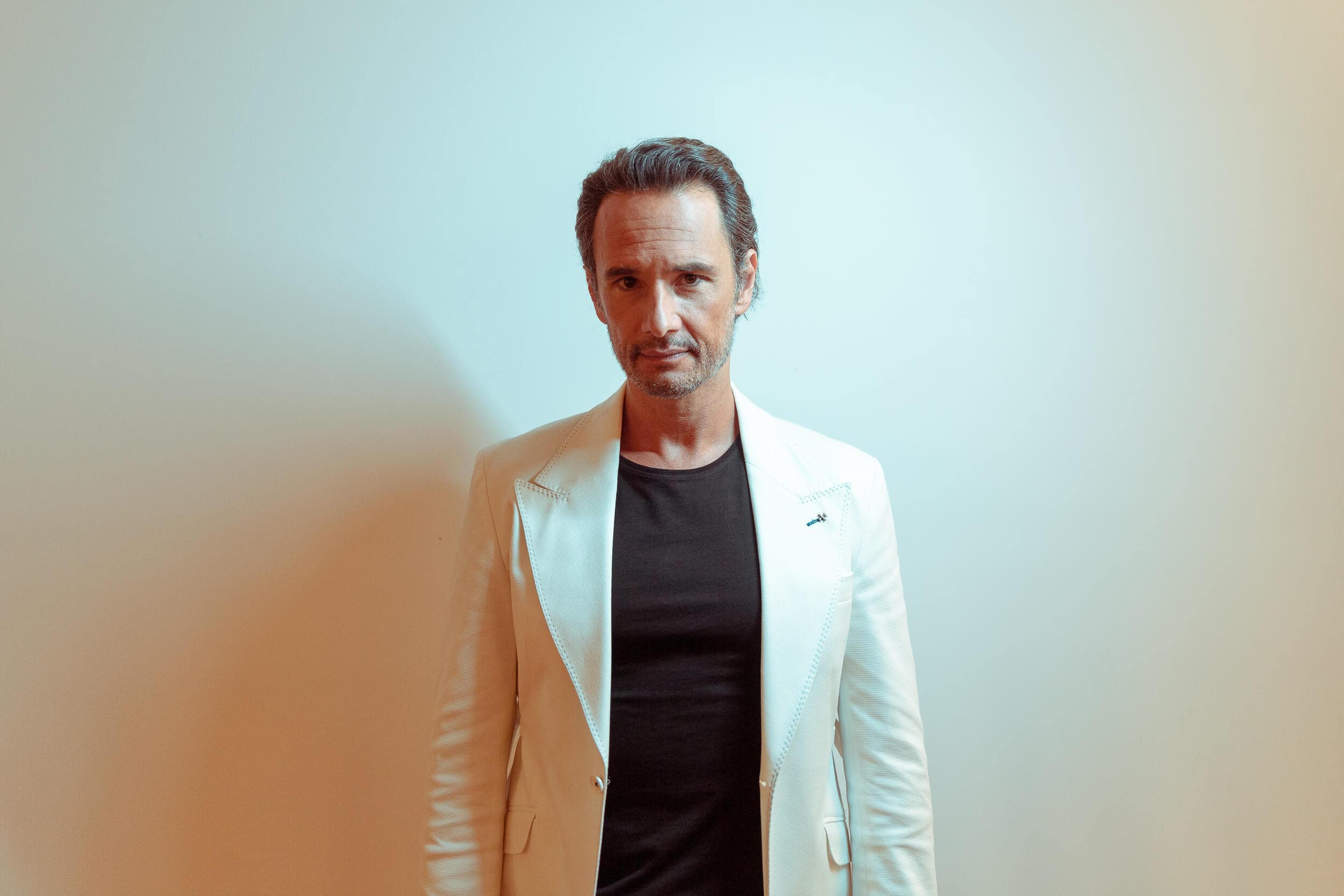
“I felt guilty of what I had, I felt scared, and I couldn’t help, in the beginning, but judging Luca and hating him, I hated my role, the character I was playing; so, I had to put that away because, as an artist, I cannot judge him, I can have an opinion, but, as an artist, I want to bring humanity and play the part as it is.”
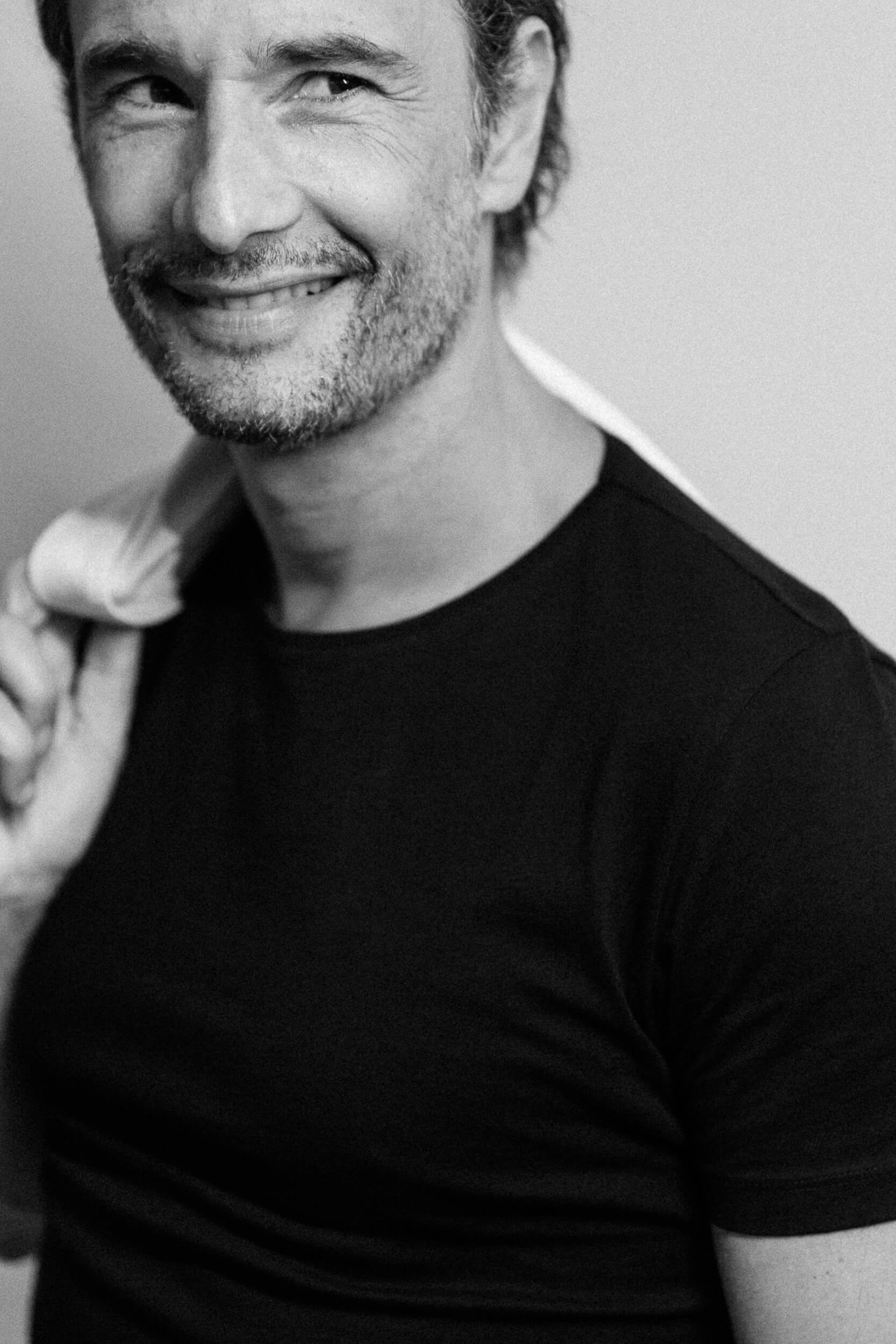
You mentioned guilt, and there is the wires scene, when he shows Mateus the wires and says, “These are the wires we are working on,” and you kind of feel like an accomplice of everything. What would you like for the audience to take away from this movie and how do you think it will be received in Brazil?
I think it comes in a very important moment, with everything we’ve been going on in the world and especially in Brazil. It’s hard to say what the audience should take from it, what the message of the movie is, I think this is up to the audience, every person will connect, or not, be touched, or not, criticize, or not, so it’s a very individual experience. I think that the experience of a film is completed when it reaches the audience, it happens in the body of the audience, in every spectator. You’re going to watch that film and the result is your perception of that film.
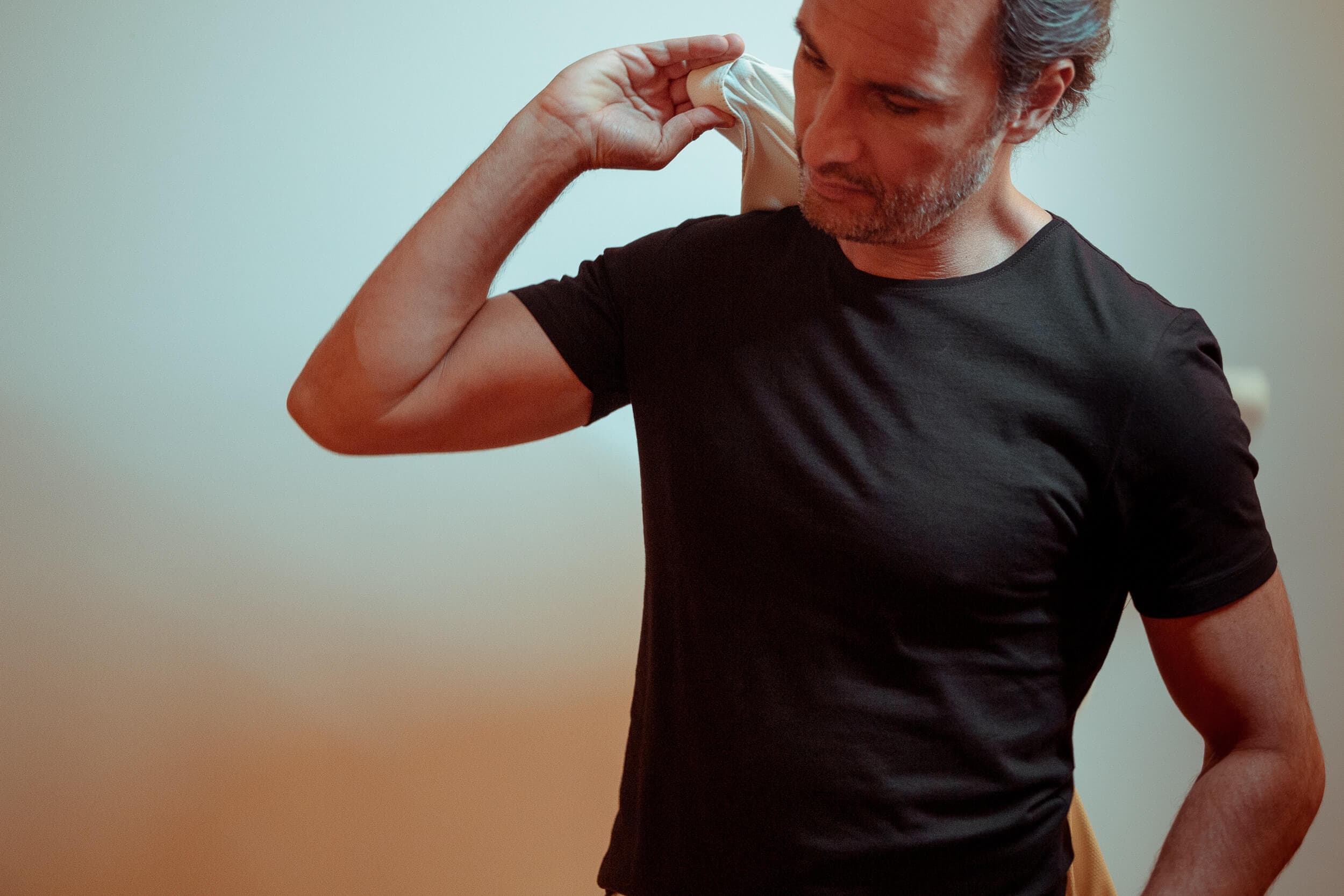
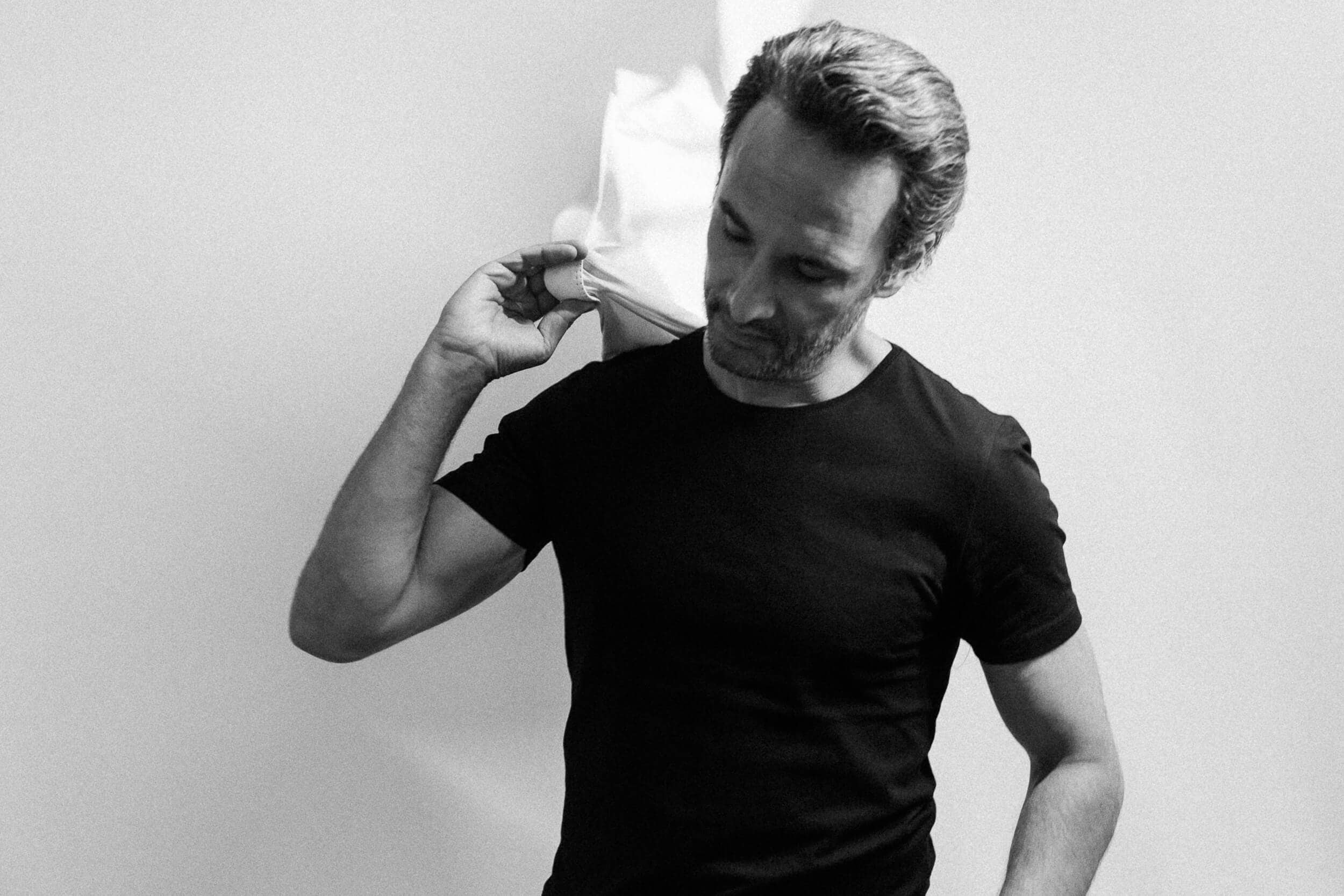
But, of course, we want to raise the discussion, this is a metaphor for the results of the social gap of our society, it’s such an unfair system that does not look for these people, and they do not have opportunities to be a person, to have a decent life, to have the basics, they’re in misery. So, that’s why, in the end, you’re sort of asking, “What is Mateus going to do? What is right and what is wrong when you’re talking about survival?”. They’re all survivors, even Luca is a survivor, Luca is a product of this system, and it doesn’t mean as a victim, at all, and I wanted to be very clear that he’s aware of everything, he’s doing terrible things, but, if you do a portrait of his life, he’s also a product of all that, he made choices, but that is a result of the system. We hope that this will raise the discussion because we need to face it.
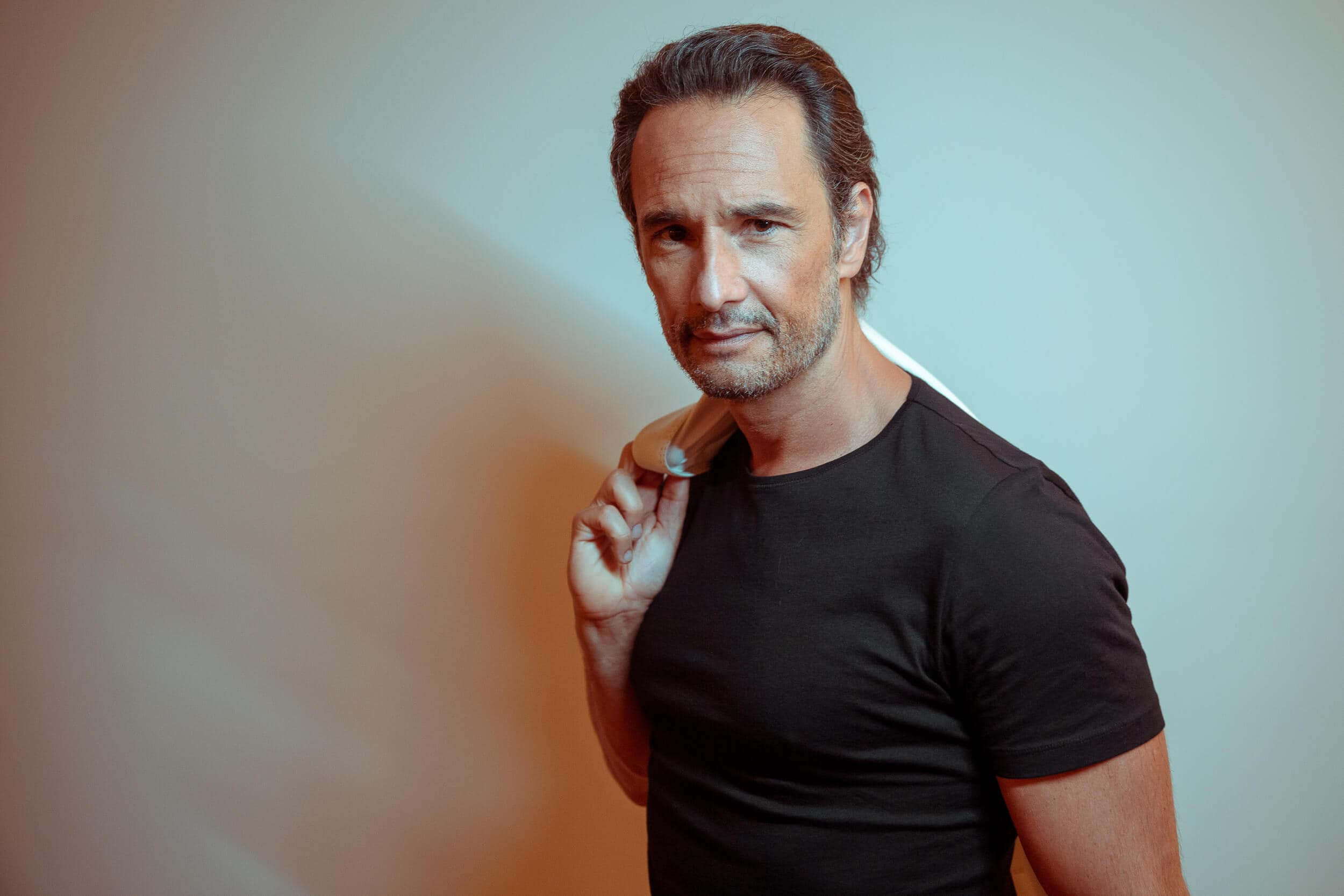
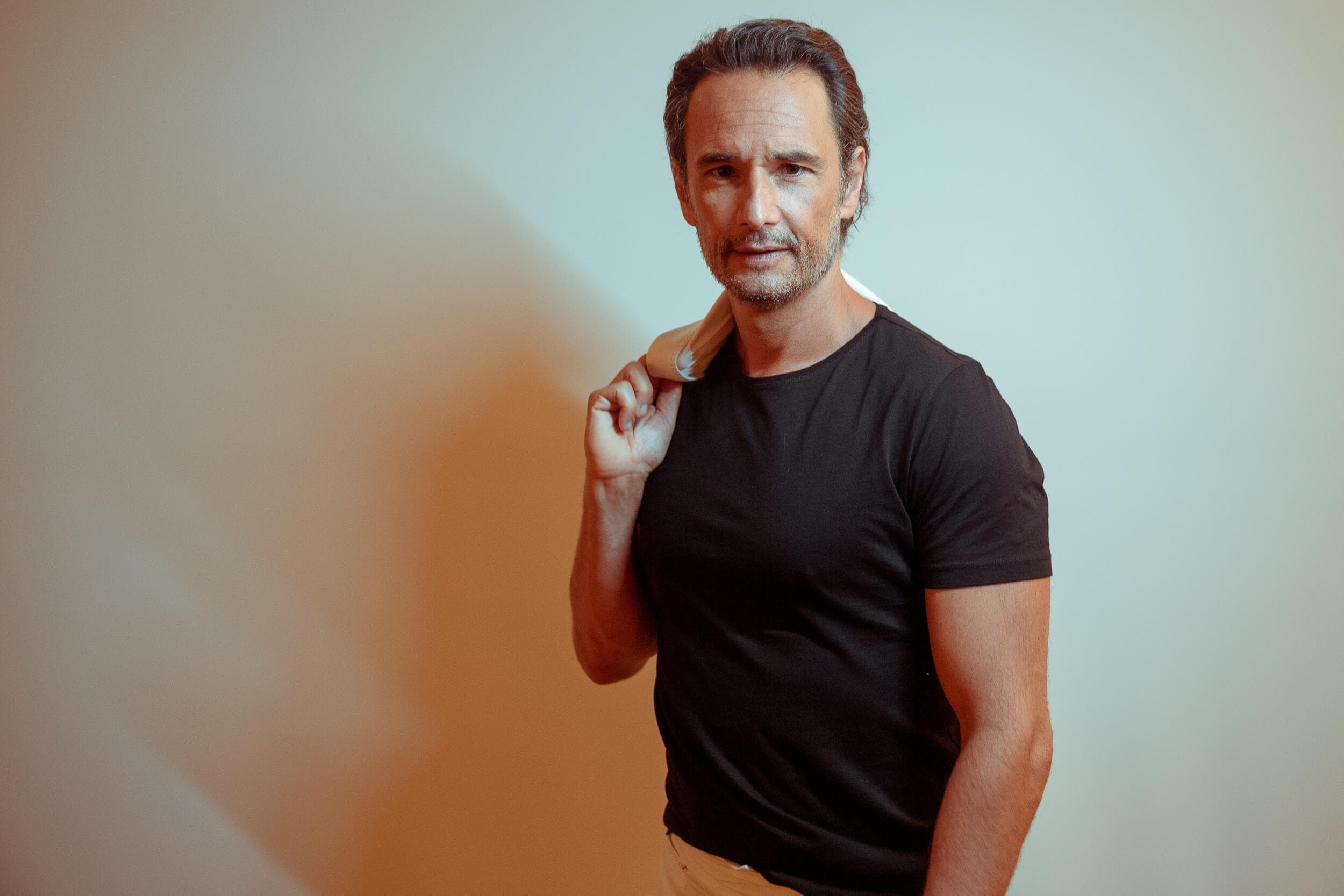
“We hope that this will raise the discussion because we need to face it.”
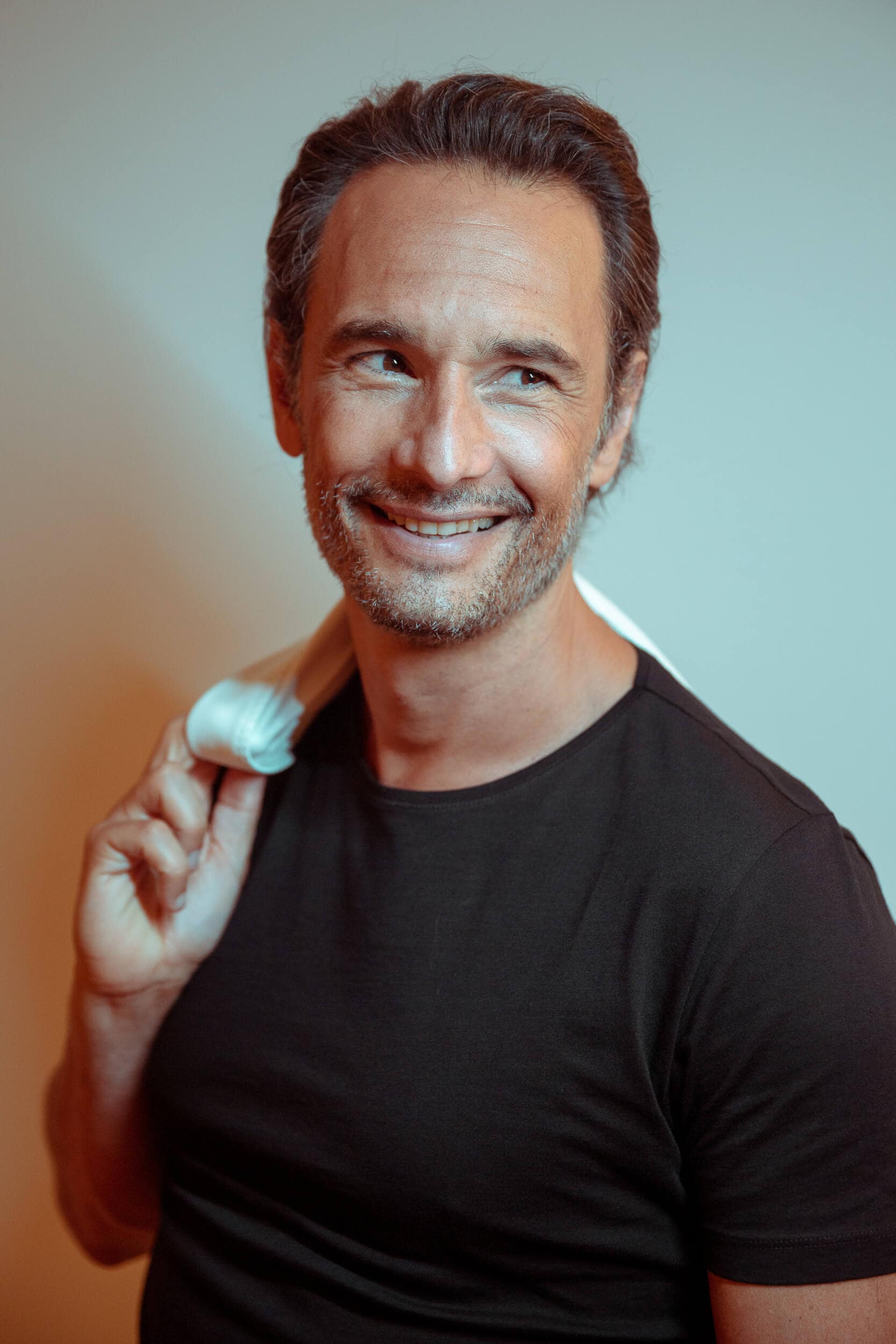
Photos by Luca Ortolani.

